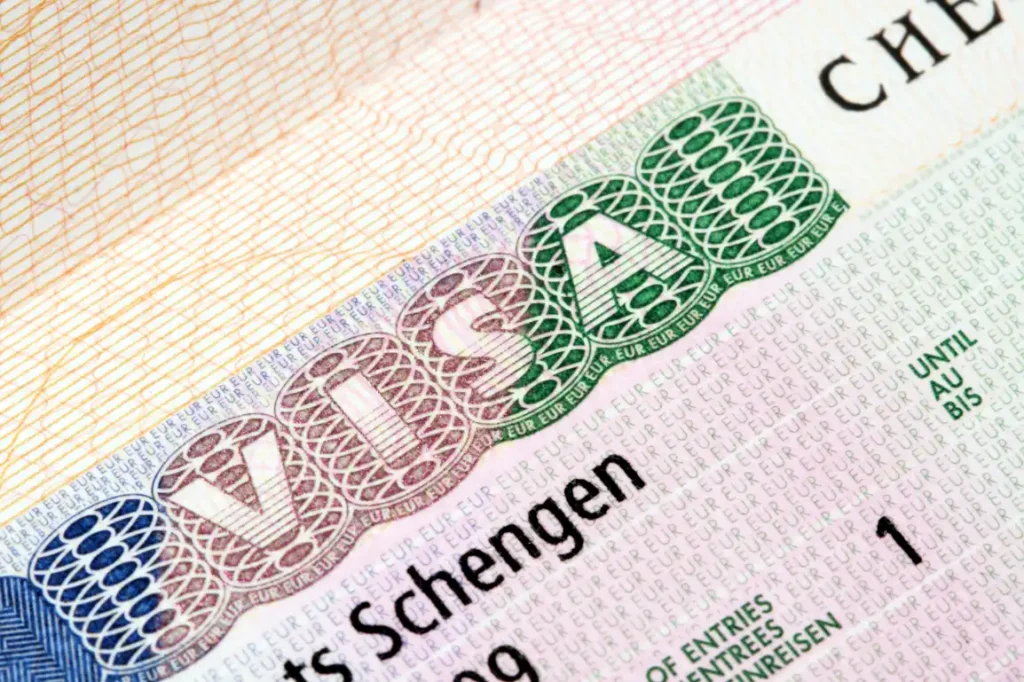Home > Your Schengen Visa Was Rejected: Now What?

Your Schengen Visa Was Rejected: Now What?
No matter the reason you're applying for a Schengen visa, it can be very disappointing when you've gone through the application process, only to find that your visa has been denied.
It's natural to feel overwhelmed, frustrated, or even confused, especially if your trip now has to be pushed back or even canceled.
So, what actually happens if your Schengen visa application is denied? Can you ask for reconsideration? Are you able to apply again?
We're going to be taking a look at the most common reasons Schengen visas are denied, such as failure to obtain Schengen travel insurance), and what to do next if you find yourself in this situation.

What happens if your Schengen visa is rejected
The good news is that you have options.
First, figuring out the reason(s) behind the refusal can help you plan your next steps, whether you think it makes sense to appeal the decision or start the application process over again from the top.
The first thing you should know is that if your Schengen visa application is rejected, you’ll receive a formal notice of refusal outlining the reason(s) for the denial. This will likely come in the form of an email, but you can check with your visa application center or consulate to make sure.
The formal notice should also give you information about how to appeal the decision if you feel it was unjustly made. Still, approval after an appeal isn't guaranteed.
While a negative answer isn't the result anyone is hoping for, there is some good news. A visa rejection doesn't mean you can't reapply.
This means that if appealing isn't an option or doesn't make sense in your situation, you can immediately reapply for your Schengen visa. While there isn't a mandatory waiting period, you will have to start the process over again.
If you decide to reapply, make sure you address the reasons your initial visa application was refused. If you didn't have valid insurance, make sure you do for your next application. If you weren't able to show sufficient proof of funds, make sure you have all of the paperwork and proof ready to go.
Addressing the reasons for your visa rejection will give you the best chance at having a more successful outcome.
All of that said, unfortunately, getting a visa is never a "for sure" thing. Visas can be denied for any reason.

Common reasons for Schengen visa rejection
Always look to your official notice as to why your visa was rejected.
Still, it can be helpful to know some of the more common reasons for Schengen visa rejections, especially if you have yet to apply and are just looking to learn more about the entire process and potential outcomes.
Incomplete or incorrect documentation
Submitting an incomplete application is one of the top reasons for Schengen visa refusals.
What does this look like exactly? This could be anything from missing documents and errors in your application to inconsistencies between them.
Seemingly small details such as this can lead to immediate rejection.
An example of an inconsistency could be disparities between dates. For your visa application, your airline tickets, accommodation bookings, and travel insurance should all have the same start and end dates, for example.
Insufficient financial proof
One of the Schengen visa application requirements is showing that you can financially support yourself during your trip.
This is a mandatory requirement, and without sufficient evidence of funds, your visa application will likely be rejected.
Authorities are typically looking for bank statements and pay slips, but the visa center where you are applying will provide you with a list of required documents.
While you need to show that you can cover yourself for your stay, the funds don't necessarily need to belong to you. For instance, a family member can sponsor you, or even your workplace, if it's a business trip.
You'll still need to show proof that you can use these funds and that you have access to them, but there is some flexibility around how your trip is funded. Make sure to look at the official checklist you receive from the visa application center or consulate.
Passport validity
There are passport requirements when it comes to traveling to the Schengen zone. This is true even for foreigners who do not need a visa to visit.
Your passport’s expiration date should be at least three months after your intended date of departure from the Schengen area.
If you have a multiple-entry visa, the expiry date needs to be at least three months after you depart from your last country/last trip.
Lastly, your passport has to have been issued within the past 10 years.

Lack of proper travel insurance
Another requirement that can be overlooked is Schengen travel insurance.
All Schengen visa applicants have to show coverage that meets certain criteria set by the Schengen zone.
Failure to provide this will result in rejection.
Your insurance policy needs to have a minimum of €30,000 in emergency medical coverage, including repatriation, cover you in all Schengen countries, and for the entire duration of your trip.
If you don't get a policy that meets the Schengen visa insurance requirements, your visa application will be rejected.
100% Compliant Schengen Insurance
Get compliant insurance here in under a minute!
How to reapply after a rejection
If your application was denied, you can reapply.
Still, it is really important that you fix any issues from your previous application, i.e., why it was rejected in the first place.
When you reapply, make sure you:
- Read the refusal letter carefully: Look at the refusal letter so you understand the reasons your visa application was denied. Was a required document missing? Were the dates inconsistent? Did you fail to show proof of financial means?
- Correct your mistakes: Make sure your new application addresses (and fixes) the issues outlined in the refusal letter. Update any documents that need changes and ensure all information is accurate, complete, and meets the requirements set by the Schengen area.

Schengen visa denial appeal letter: Can you appeal a rejection?
If you believe your application was unfairly denied, you can file an appeal.
Each country has its own appeal process, but generally, you need to:
- Write a detailed appeal letter addressing the reasons for rejection.
- Include additional evidence or clarifications for the documents or assets in question.
- Submit the appeal within the time frame (check your official rejection letter for specific details).
